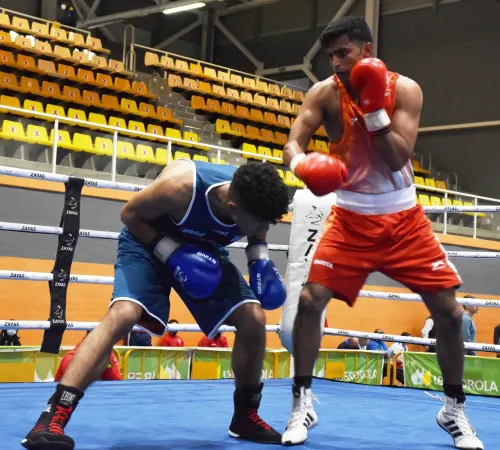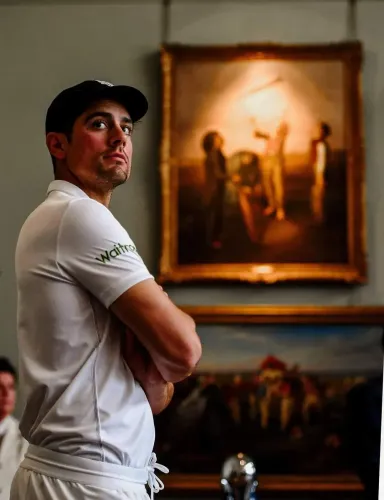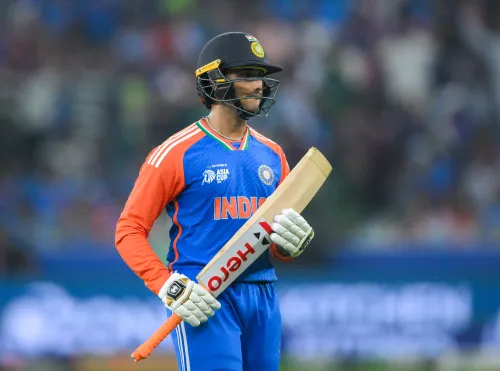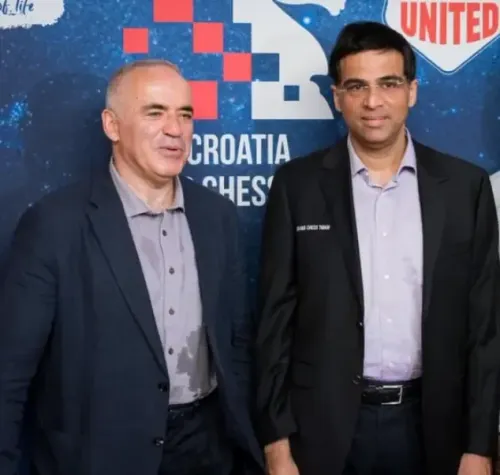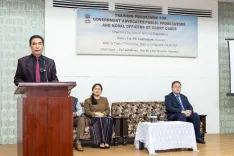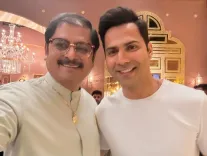Is it a proud moment to see Indian hockey celebrate 100 years?

Synopsis
Key Takeaways
- Indian hockey celebrates 100 years of rich history.
- The sport has won eight Olympic gold medals, the highest of any nation.
- Gurbux Singh, a legendary player, shares insights on the sport's journey.
- The rivalry between India and Pakistan remains a significant aspect of hockey history.
- Indian hockey continues to inspire future generations.
New Delhi, Oct 7 (NationPress) Hockey India has initiated a month-long campaign in anticipation of the centenary celebrations on November 7, signifying 100 years of Indian hockey.
The establishment of the first hockey sports governing body occurred in 1925, with November 7 marking a historic milestone. In 1928, the Indian hockey team claimed its first Olympic gold medal by defeating the Netherlands in Amsterdam. To date, the Indian hockey team has secured a total of eight Olympic gold medals, the highest tally by any nation in Olympic history.
The period from 1928 to 1959 is often referred to as the golden era of Indian hockey. Following a decline in the 1980s and 90s, Indian hockey experienced a resurgence starting in 1998. The bronze medal win at the Tokyo Olympics in 2020, under the captaincy of Manpreet Singh, marked a significant comeback, with the team achieving the same podium finish in Paris 2024.
India has amassed a total of eight Olympic gold medals, one silver, and four bronze medals in the Summer Games, establishing hockey as a legacy sport in the nation. Additionally, India secured a World Cup victory in 1975 and has performed admirably at the Asian Games, winning four gold, nine silver, and three bronze medals. The women's team has also earned seven medals at the Asian Games.
Reflecting on the importance of this centenary, Gurbux Singh, the sport's oldest living icon at 90 years, expressed immense pride in being associated with this glorious and highly decorated sport in India. He stated, "Completing 100 years with such remarkable achievements globally, Indian hockey stands prominent in the sports arena, and this occasion deserves to be celebrated in a fitting manner. We, as Indians, should take pride in this legacy," said Gurbux, affectionately nicknamed 'professor' by his Pakistani rivals for being the only player to compete wearing spectacles.
Having devoted a significant part of his life to the sport, Gurbux began his journey in 1955 as a budding player at his university in Gwalior. He trained under the legendary Roop Singh and soon represented Madhya Bharat in 1956 before making his international debut for India in 1959. He was part of the team that achieved victory at the 1964 Tokyo Olympics, winning gold. Gurbux reminisced, "It’s been nearly 65 years since I’ve been connected to this sport, and it has enriched my life immensely. The 1964 Olympic gold and the 1966 Asian Games gold hold special significance for me. Back then, winning the Olympics meant being world champions since the World Cup didn’t exist yet. That triumph against Pakistan was unforgettable."
When asked about the most significant rivalry in the sport's history, Gurbux instantly responded, “India vs Pakistan!” He emphasized, "Without a doubt, that was the greatest rivalry ever. Prior to partition, we played as one team, and post-partition, no European team could match the intensity of our rivalry with Pakistan. The matches were fiercely contested by both sides."
"From a personal perspective, there was no hostility off the field between the two teams. Almost 13 out of the 18 players on the Pakistan team were Punjabis directly impacted by the partition. We played the 1966 Asian Games shortly after the 1965 war. On the field, we viewed them strictly as competitors we wanted to defeat. It was never about playing Pakistan; it was just another match that needed to be won, which is the most crucial aspect," he concluded.

